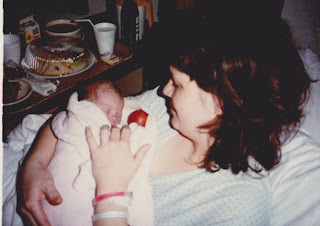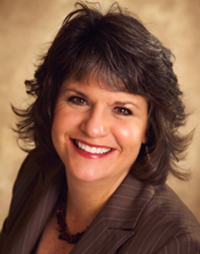I have been curious about depression since I was a small child. I didn't have a name for it but even as a very small child I knew that something was wrong with my mom. I know now it was depression. It eventually was a contributing factor in her death at age 37. Depression has been a life long curiosity for me, a puzzle I long to solve. The mystery of my mother's depression was a key factor in my career choice.
As a parent educator, I see many women struggle with postpartum depression in particular. I am trained to recognize it and to make the necessary referrals to keep her and her family safe. One of my teaching units is as a "Baby Connector" in Winona County. We visit homes of new parents. We teach them about what to expect, we answer their questions about their new role as parents, and we do what we can to connect them to a parenting community. It is one of my favorite parts of the week. I often make more than one visit to a new family and am always taken aback when I see the impact postpartum depression has on a family.
The latest statistics in the US report that 12% of adult women have been diagnosed with depression. For adult men, the number falls to 6%. In my work, I see higher numbers and always see the population I work with as "at risk" for depression for several reasons:
~Many of them are stay at home parents. Staying at home with small children can be very isolating and repetitious. Children are unpredictable and often frustrating.
~We live in Minnesota. I often introduce the concept of "the dark season" as soon as November hits. I see the effects of fewer daylight hours and colder weather on my population of parents and their children.
~The mother's I work with often have unpredictable hormone changes after birth and during their time nursing their babies. They often do not take care of their own nutritional or emotional needs.
My trip to China this past summer was wonderful. Some of the "risk factors" that I look for in my population of parents look different in Chinese parents.
~They share parenting responsibilities with two sets of grandparents. Where Minnesota parents are often isolated, Chinese parents may be overwhelmed with the number of adults sharing parenting responsibilities. Most Chinese families have one child.
~The weather pattern is somewhat similar although winter in China is not as harsh as it is here in Minnesota. Chinese parents in big cities often suffer from lack of sunlight due to the constant presence of smog. In the 12 days I was in China, I saw one sunny day.
~Hormone changes are a universal concern for all women who give birth. When I spoke with my friend Tong, she talked about women bearing some shame for depression in China. Clearly, more education is needed there to bring depression out of the closet. China has a long way to go in understanding and accepting depression as an illness.




















